|
For Americans, the annual observance of the Fourth of July celebrates the independence of the United States. Our national story is made up of the varied lives and unique experiences of countless peoples who nonetheless share in seeking “life, liberty, and the pursuit of happiness.” Each of these people is following his or her own American Dream, the achievement of which requires hard work, fortitude, and faith. As we celebrate and reflect upon our personal freedoms— long fought for and subsequently defended— we also acknowledge those peoples whose rights are continually imperiled or at risk of being curtailed by injustice. The United States by no means has a spotless record in establishing civil rights, but those efforts have raised up incredible heroes who sought to make the American Dream more accessible peacefully and justly. As Catholics, we especially thank God for His blessings on this land and for the preservation of our rights to bear witness to Him publicly as Americans.
Thanks to the efforts of French and Spanish missionaries in the 16th and 17th centuries, Catholicism began to take root among the indigenous peoples of what would become the United States. As the fledgling country wouldn’t have an installed bishop until 1789, the American Church continued to grow during the first half of the 19th century thanks to the influx of Irish and German immigrants seeking the religious toleration which was becoming less and less abundant in Europe. Protestants were critical of these arrivals, declaring it was not possible to be a good American and Catholic at the same time (partly due to false beliefs spread about allegiance to the Roman pope). Thanks to the determination of these immigrants, and the grace of the Holy Spirit, by 1850 Roman Catholicism was the largest denomination in the United States. Despite the political and cultural persecution American Catholics experienced, the ministries and loving charity of certain clergy and religious ensured that the needs of their fellow citizens were met. Figures like Mother Cabrini and Mother Seton founded religious communities that took care of the poor whom society all too often ignored. Mothers Drexel and Duchesne cared for Native Americans (as did Kateri Tekakwitha), African Americans, and women as they evangelized with the missionary spirit. Fr. Michael McGivney began a member-benefit society (which would become the Knights of Columbus) to care for the widows and families of Catholic male breadwinners who lost their lives. Isolated from the public square, the Catholics of this country nevertheless found a niche caring for other outcasts through a public witness that expressed faith as the catalyst for action. Doing so forced many observers to cease their suspicions and prejudices and helped normalize Catholicism in America. The examples of faithful religious continued to inspire Catholics in all walks of life to live out their faith freely. In recognition of their faithful witness of the Gospel, many of these brave citizens are now hailed as saints for universal veneration in the Church. Today, secularism and the misrepresentation of civil rights threaten the very foundation of the society which Catholics have indisputably helped shape. Legal challenges are filed against religious symbols, schools, churches, and charities, supposedly for discriminatory actions or the preservation of the separation of church and state. American Catholics are often torn between publicly defending these institutions and their work or avoiding antagonization for speaking out. Nonetheless, the Church continues to meet the needs of the poor and the outcast in the same spirit of welcome the poet Emma Lazarus immortalized in the words of “The New Colossus,” which hangs in the pedestal of the Statue of Liberty: “Keep, ancient lands, your storied pomp!” cries she With silent lips. “Give me your tired, your poor, Your huddled masses yearning to breathe free, The wretched refuse of your teeming shore. Send these, the homeless, tempest-tost to me, I lift my lamp beside the golden door!” As Americans, we thank God for the gift of religious liberty and for those who continuously defend it. As Catholics, we pray for our leaders to be guided by the Holy Spirit to pursue justice and for those abroad who are still struggling for the basic rights and freedoms we enjoy. There is no shortage of opportunities around us to live and act as the saints before us. The American story continues with each of us; perhaps its future chapters will tell of the great love and commitment of countless citizens who welcomed the refugee, defended the unborn, cared for the disabled, accompanied the lonely and the imprisoned, fed the hungry, clothed the naked, promoted charity, and honored the dead. We have much to celebrate on July Fourth; may God always guide our nation in the ways of liberty and justice for all.
0 Comments
Last week a friend and I were watching football together and we started talking about how unprecedented of a year 2016 has been. At that moment it seemed like anything was possible—the Cubs were headed to the World Series, a feat that last happened in 1945! My friend even joked that maybe the Bears would win the Super Bowl! Well the Cubs have won the World Series, first time since 1908, and the Bears still look dubious for the Super Bowl. There are countless examples of how different this year has been, but none more so than our current presidential election. This long and winding election will finally be over and our Facebook newsfeeds will return to their usual mix of cat photos and recipe videos. During this election cycle I have often been asked by a lot of my friends what a Catholic is supposed to do. Some people have made up their minds completely independent of the magisterium of the Church, while others have decided to completely remove themselves in the process by not voting.
As faithful Catholics, participating in our electoral system requires a formation of conscience. It demands that one know and understand the different issues and the Church's teachings of various issues. It is not something that can be broken down into a simple check box format, but demands an understanding of the teachings of the Church. In response to this situation, the bishops of the United States have written a pastoral letter, Forming Consciences for Faithful Citizenship outlining several key teachings that are important to today's political climate. We at the Catholic Apostolate Center have created a special portal dedicated to this document. I highly recommend visiting the page and exploring its various topics. Exploring these issues and positions is critical to making an informed decision. The document goes into detail regarding the very nature of Catholic involvement in our politics. This process includes a formation of oneself both as an apostle and a citizen. A few months ago, Bishop Robert W. McElroy, Bishop of San Diego, wrote about this formation. Saying "It is for this reason that the central foundation for an ethic of discipleship in voting for the Catholic community in the United States today lies not in the embrace of any one issue or set of issues but rather in a process of spiritual and moral conversion about the very nature of politics itself." The other common thing I hear from some people is that "so many people vote, mine can’t possibly matter." These individuals are choosing not to participate in their right to vote as a citizen of this country. Everyone has that right to not participate, but before making this decision there are things to consider. One should remember that the Church encourages our participation. Cardinal Donald Wuerl, Archbishop of Washington expanded on this further last week in a column in The Catholic Standard discussing Forming Consciences for Faithful Citizenship "Civic participation is not a simple task for faithful citizens It requires a willingness to listen to Catholic social teaching, and then conscientiously apply it to the political sphere. We must pray for guidance in our civic choices so as to uphold the dignity of all life and the common good. We must learn about the issues and where candidates stand. We must vote in recognition of the important contribution that every voice makes on Election Day, and we must remain engaged to build a civilization of justice, peace and caring for one another. Tonight, we should know the results of the election and a portion of the country will be disappointed. Whoever is elected will have the enormous task of unifying this country and moving forward. That task will not be an easy one, but is possible. One only needs to look at the example Pope Francis gave last week in Sweden. He traveled there to commemorate the 500th anniversary of the Protestant Reformation and spoke of the hope for reconciliation between Catholics and Lutherans: “We have the opportunity to mend a critical moment of our history by moving beyond the controversies and disagreements that have often prevented us from understanding one another.” Catholics in the United States are also called to similarly work hard to build bridges to our neighbors. I have no doubt that this country will unify but it will take understanding, prayer, and time. We are about two weeks into our Lenten sojourn, and I’m not sure about your experience so far, but I know that it has already been a challenge for me. And that’s good! I wanted this Lent to more closely unite me to the Cross of Christ, not just for these forty days, but beyond this season, and God is answering this prayer in ways that I could never expect. In fact, he is delivering me from my own crosses so that I may know joy through this suffering.
So far, I’ve been able to take away two important lessons from my Lenten journey so far:
Life is hard. Our days are filled with many demands, and sometimes we fail to meet them. People will disappoint us. We may hurt others by our words or actions. We find ourselves exasperated, or at times feeling hopeless. But the one who hopes in the Lord knows that all of these trials of being human bring us to the Cross and teach us sacrificial love. This weekend at mass I was told, “Lent is a school of charity. Life is a school of charity” (Msgr. Andrew Wadsworth). As we navigate these crosses, God is literally stretching our hearts to be open to love – the love of the Cross – so that when we reach heaven, our hearts are like Christ’s sacred heart. And if he stretches our hearts through pain and sorrow, imagine how much God stretches our hearts through hope and joy! Through every trial and every gift we are being molded to become more Christ-like, capable of infinite love. If we could truly fathom this infinite love that God is preparing us for, we would live life on our knees in awe of the Cross. Truly we can say that life is a school of love, a school of charity. The readings today teach us how we can plant our roots to let the Lord more fully direct our lives. We are consistently given the image of a tree whose roots are planted near running water. This tree’s leaves never fade, and in even drought, it still bears fruit. For me, this tree represents my cross, whose confidence must rely solely in the Lord. God can only keep my leaves evergreen if I live off of his waters, God will perform miracles in my life if I let him. Truly letting go of my pride and independence is so hard, yet extremely humbling. It truly takes confidence and prayer. In this school of charity, I’ve learned that even the simplest of prayers can help me submit my cross to God each day: “Multiply my time, Lord,” or “Let me see you where you need me to.” When I say these prayers and trust God to fulfill them, he does. He’s stretching my heart to know his love. He carries my crosses for me. Truly, I am a mere student in this school of charity. As you pray today over your takeaways from Lent so far, I pray that you come to find peace in how the Lord is trying to carry your cross through His school of charity, and that you call upon the grace to let him do so. I pray that you reflect on where your tree is planted and that you want to live by God’s living streams. Ultimately, I pray that you know how loved you are. You are so loved that God is stretching your heart so that you may become more like him. He wants you to know infinite love, who is our Lord Jesus himself. “I pray that you, being rooted and firmly established in love, may be able to comprehend with all the saints what is the length and width, height and depth of God’s love.” – Ephesians 3:17-18 Alyce Anderson is a teacher in Washington, D.C. “Lead me in your justice, Lord” is the response from today’s responsorial psalm. It is a fitting tie-in, as we are days away from the conclusion of the Fortnight for Freedom, an effort sponsored by the United States Conference of Catholic Bishops to encourage all U.S. Catholics to not only recognize the freedom we already enjoy as citizens but to also recognize that there is still progress to be made.
Yesterday, a crucial step was taken towards the protection of religious liberty in the United States, as the Supreme Court released its decision in what has been known as the “Hobby Lobby” case. The court ruled yesterday that “closely held,” for-profit, corporations have the ability to opt out of the Department of Health and Human Services contraception mandate which was instituted as part of the Affordable Healthcare Act. This ruling protects the rights of private citizens to follow their religious beliefs and not be forced to violate them in their businesses. In a sense, this is exactly what the Fortnight for Freedom is all about, and it is appropriate that the decision was released in the middle of this Fortnight. The focus on religious liberty can often get lost in the heavily politicized nature of these debates. Many people forget that contraception is not the heart of the issue, but rather protecting the right of employers and religious institutions to follow their own beliefs. This is a polarizing issue, one which many people have strong opinions on. We hear the cry of religious liberty constantly and while it is imperative to continue the fight for this religious liberty, we as Catholics must remember that we are working to defend our right to make these important (and often controversial) decisions ourselves, through our own faith-formed conscience. The conclusion of the Fortnight for Freedom will be on July 4th, Independence Day. This is a time for us as a nation to come together to celebrate the country that we live in, imperfect as we often may be. We must remember the news reports which are filled with stories of religious persecution and humanitarian tragedies, and recall that we are blessed to enjoy the freedom we do have, the freedom that is one of the principles that this country was founded on. During these last few days of the Fortnight for Freedom, take some time to recognize what freedoms you are especially grateful for, and take a moment to pray the Prayer for the Protection of Religious Liberty: O God our Creator, from your provident hand we have received our right to life, liberty, and the pursuit of happiness. You have called us as your people and given us the right and the duty to worship you, the only true God, and your Son, Jesus Christ. Through the power and working of your Holy Spirit, you call us to live out our faith in the midst of the world, bringing the light and the saving truth of the Gospel to every corner of society. We ask you to bless us in our vigilance for the gift of religious liberty. Give us the strength of mind and heart to readily defend our freedoms when they are threatened; give us courage in making our voices heard on behalf of the rights of your Church and the freedom of conscience of all people of faith. Grant, we pray, O heavenly Father, a clear and united voice to all your sons and daughters gathered in your Church in this decisive hour in the history of our nation, so that, with every trial withstood and every danger overcome-- for the sake of our children, our grandchildren, and all who come after us-- this great land will always be "one nation, under God, indivisible, with liberty and justice for all." We ask this through Christ our Lord. Amen. Rebecca Ruesch is the Blog Editor for the Catholic Apostolate Center As we celebrate Independence Day, a day of thanksgiving and gratitude for this great country we live in, let us be reminded of our first American Saint, Elizabeth Ann Seton and the work she did to bring liberty and justice to all! The following is the Homily of the Pope Paul VI on the Canonization of Elizabeth Ann Seton, with emphasis added. 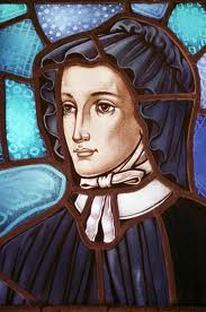 Yes, Venerable Brothers and beloved sons and daughters! Elizabeth Ann Seton is a Saint! We rejoice and we are deeply moved that our apostolic ministry authorizes us to make this solemn declaration before all of you here present, before the holy Catholic Church, before our other Christian brethren in the world, before the entire American people, and before all humanity. Elizabeth Ann Bayley Seton is a Saint! She is the first daughter of the United States of America to be glorified with this incomparable attribute! But what do we mean when we say: "She is a Saint"? We all have some idea of the meaning of this highest title; but it is still difficult for us to make an exact analysis of it. Being a Saint means being perfect, with a perfection that attains the highest level that a human being can reach. A Saint is a human creature fully conformed to the will of God. A Saint is a person in whom all sin-the principle of death-is cancelled out and replaced by the living splendor of divine grace. The analysis of the concept of sanctity brings us to recognize in a soul the mingling of two elements that are entirely different but which come together to produce a single effect: sanctity. One of these elements is the human and moral element, raised to the degree of heroism: heroic virtues are always required by the Church for the recognition of a person's sanctity. The second element is the mystical element, which express the measure and form of divine action in the person chosen by God to realize in herself-always in an original way-the image of Christ (Cfr.Rom. 8, 29). The science of sanctity is therefore the most interesting, the most varied, the most surprising and the most fascinating of all the studies of that ever mysterious being which is man. The Church has made this study of the life, that is, the interior and exterior history, of Elizabeth Ann Seton. And the Church has exulted with admiration and joy, and has today heard her own charism of truth poured out in the exclamation that we send up to God and announce to the world: She is a Saint! We shall not now give a panegyric, that is, the narrative which glorifies the new Saint. You already know her life and you will certainly study it further. This will be one of the most valuable fruits of the Canonization of the new Saint: to know her, in order to admire in her an outstanding human figure; in order to praise God who is wonderful in his saints; to imitate her example which this ceremony places in a light that will give perennial edification; to invoke her protection, now that we have the certitude of her participation in the exchange of heavenly life in the Mystical Body of Christ, which we call the Communion of Saints and in which we also share, although still belonging to life on earth. We shall not therefore speak of the life of our Saint Elizabeth Ann Seton. This is neither the time nor the place for a fitting commemoration of her. But at least let us mention the chapters in which such a commemoration should be woven. Saint Elizabeth Ann Seton is an American. All of us say this with spiritual joy, and with the intention of honoring the land and the nation from which she marvelously sprang forth as the first flower in the calendar of the saints. This is the title which, in his original foreword to the excellent work of Father Dirvin, the late Cardinal Spellman, Archbishop of New York, attributed to her as primary and characteristic: "Elizabeth Ann Seton was wholly American!" Rejoice, we say to the great nation of the United States of America. Rejoice for your glorious daughter. Be proud of her. And know how to preserve her fruitful heritage. This most beautiful figure of a holy woman presents to the world and to history the affirmation of new and authentic riches that are yours: that religious spirituality which your temporal prosperity seemed to obscure and almost make impossible. Your land too, America, is indeed worthy of receiving into its fertile ground the seed of evangelical holiness. And here is a splendid proof-among many others-of this fact. May you always be able to cultivate the genuine fruitfulness of evangelical holiness, and ever experience how-far from stunting the flourishing development of your economic, cultural and civic vitality -it will be in its own way the unfailing safeguard of that vitality. Saint Elizabeth Ann Seton was born, brought up and educated in New York in the Episcopalian Communion. To this Church goes the merit of having awakened and fostered the religious sense and Christian sentiment which in the young Elizabeth were naturally predisposed to the most spontaneous and lively manifestations. We willingly recognize this merit, and, knowing well how much it cost Elizabeth to pass over to the Catholic Church, we admire her courage for adhering to the religious truth and divine reality which were manifested to her therein. And we are likewise pleased to see that from this same adherence to the Catholic Church she experienced great peace and security, and found it natural to preserve all the good things which her membership in the fervent Episcopalian community had taught her, in so many beautiful expressions, especially of religious piety, and that she was always faithful in her esteem and affection for those from whom her Catholic profession had sadly separated her. For us it is a motive of hope and a presage of ever better ecumenical relations to note the presence at this ceremony of distinguished Episcopalian dignitaries, to whom-interpreting as it were the heartfelt sentiments of the new Saint-we extend our greeting of devotion and good wishes. And then we must note that Elizabeth Seton was the mother of a family and at the same time the foundress of the first Religious Congregation of women in the United States. Although this social and ecclesial condition of hers is not unique or new (we may recall, for example, Saint Birgitta, Saint Frances of Rome, Saint Jane Frances Fremiot de Chantal, Saint Louise de Marillac), in a particular way it distinguishes Saint Elizabeth Ann Bayley Seton for her complete femininity, so that as we proclaim the supreme exaltation of a woman by the Catholic Church, we are pleased to note that this event coincides with an initiative of the United Nations: International Women's Year. This program aims at promoting an awareness of the obligation incumbent on all to recognize the true role of women in the world and to contribute to their authentic advancement in society. And we rejoice at the bond that is established between this program and today's Canonization, as the Church renders the greatest honor possible to Elizabeth Ann Bayley Seton and extols her personal and extraordinary contribution as a woman -a wife, a mother, a widow, and a religious. May the dynamism and authenticity of her life be an example in our day-and for generations to come-of what women can and must accomplish, in the fulfillment of their role, for the good of humanity. And finally we must recall that the most notable characteristic of our Saint is the fact that she was, as we said, the foundress of the first Religious Congregation of women in the United States. It was an offspring of the religious family of Saint Vincent de Paul, which later divided into various autonomous branches-five principal ones-now spread throughout the world. And yet all of them recognize their origin in the first group, that of the Sisters of Charity of Saint Joseph's, personally established by Saint Elizabeth Seton at Emmitsburg in the Archdiocese of Baltimore. The apostolate of helping the poor and the running of parochial schools in America had this humble, poor, courageous and glorious beginning. This account, which constitutes the central nucleus of the earthly history and worldwide fame of the work of Mother Seton, would merit a more extended treatment. But we know that her spiritual daughters will take care to portray the work itself as it deserves. A very wise man once said, “Because of our traditions, every one of us know who he is, and what God expects him to do.” While no Chesterton, Tevye, the stubborn Jewish father from Fiddler on the Roof is on to something. He tells of traditions for working, eating and even sleeping. Had it not been for the rustic scenery and horses, I might think he was describing my beloved Notre Dame. I’ve done push-ups at football games, danced in the waters of “Stonehenge” and eagerly await the moment I can finally walk up the stairs under the Dome. Or maybe Tevye was describing my country; the reverence we show the Stars and Stripes, the fireworks on Independence Day and it’s just not a real American baseball game without the 7th inning stretch. No, no, he must have been describing my family, what with our obsession with the Charles Village Ruby Tuesday, getting new pajamas from Rudolph (yes, I still believe) every Christmas eve and our New Year’s Eve tradition of shrimp and Tostidos. Traditions are everywhere; they permeate institutions large and small and play a foundational role in defining who we are. Tevye continues, “How did these traditions get started? Well, I’ll tell you…I don’t know.”
Every institution, large or small, has a tradition of…well, traditions, so why should our Church be any different? The Catholic Church practically sweats tradition. In fact, one might consider the Church one great tradition all its own. Our apostolic succession, our devotion to the Word and our prayers to the saints all take part in the great Catholic tradition. But why? There are those who see no value in the time honored practices of devotion to Mary and the Saints, sacred silence and the most Blessed Sacrament. In an instant-gratification generation traditions are easily cast aside for more stimulated, result-driven practices. I often hear people say that the Rosary and Adoration are boring or pointless. They say that they just don’t get anything out of it. The repetitive nature of the Rosary and the austere stillness of Adoration just don’t speak to the “there’s an app for that” mentality of today’s society. As one who once thought that way, I can understand the hesitation. I’ve never finished praying through the Joyful mysteries to find the Blessed Mother appearing before me, nor have I knelt in silence before the Blessed Sacrament and heard God tell me exactly what He wanted me to do. The thing with traditions, though, is that they take time. There were probably few who marveled at the first brick that was laid above St. Peter’s tomb, and yet tens of thousands make pilgrimage to the hallowed ground of what has become Vatican City. Rome wasn’t built in a day, the old saying goes, and neither are our lives of prayer. As each brick was laid in the building of St. Peter’s, so too does each decade of the Rosary, each novena and each hour in Adoration lay one more brick in the church of our prayer lives. True, this process is lengthy, arduous even, but we hear time and time again in the tradition of our Church that we must continue the journey even when the destination is beyond our sight. The Hebrew people travelled for 40 years in the desert before arriving at the Promised Land; surely a Holy Hour before the Blessed Sacrament seems more inviting! Further, the true beauty in our Catholic prayer tradition is that these “bricks” are universal, yet diverse. They come in all colors and are found around the globe, yet each serves the same purpose. The Rosary is the Rosary in Spanish, English or even Chuukese.[1] Our traditions tell us who we are. A church without traditions would hardly be a church at all, just like a country without traditions would hardly be a country at all. There is a reason that traditions endure through the ages. They speak to a deep part of us that longs for this strong, unifying foundation. While we as Catholics come from all walks of life, we are unified by our tradition. “After all, without our traditions we’d be as shaky as…as…as a fiddler on the roof!” Patrick J Sullivan is working on his MA in theology at the University of Notre Dame through the Echo Faith Formation Leadership Program and is currently serving in the Archdiocese of Indianapolis. [1] Chuukese is the indigenous language spoken on the Micronesian island of Chuuk. My name is Alex, and I’m a pro-life Catholic. Am I simply pro-life because I am a Catholic? That is a question that I have pondered over these last few days as our nation commemorates the 39th anniversary of the landmark Supreme Court decision Roe v. Wade. My conclusion is that my Catholic faith informs my conscience (as it does on issues of morality), but that I believe that I would still be pro-life if I were an atheist or agnostic.
In his homily at last night’s Opening Mass of the National Prayer Vigil for Life at the Basilica of the National Shrine of the Immaculate Conception in Washington, DC, Cardinal Daniel DiNardo of the Archdiocese of Galveston-Houston, Texas spoke to a swelling crowd of bishops, priests, deacons, seminarians, and laity: “The sad anniversary recalled each year on January 22 has become an invitation to you, one that calls for prayer and vigil, marching and testifying, and a joyous love for human life that is unable to be defeated.” The “joyous love for human life” that Cardinal DiNardo spoke of echoes the pleas of hundreds of thousands of Americans who march, walk, and pray today for an end of legalized abortion in the United States. I suppose that my views on the pro-life movement (abortion, euthanasia, the death penalty, and all other forms of ending human life prematurely) are grounded in my belief in the Ten Commandments (“You shall not kill”) and the Declaration of Independence (“We hold these truths to be self-evident, that all men are created equal, that they are endowed by their Creator with certain unalienable Rights, that among these are Life, Liberty and the pursuit of Happiness”). I am pro-life because I am Catholic and American. The Ten Commandments and the Declaration of Independence really tap into human nature because they both capture something transcendent and universal, moving beyond the boundaries of nations, beyond the boundaries of self and the familiar. Lawmakers will not protect an unborn child, but are quick to outlaw euthanasia and physician-assisted suicide. But how does the abortion issue relate to the New Evangelization? In Pope Benedict XVI’s Motu Proprio Ubicumque et Semper establishing the Pontifical Council for Promoting the New Evangelization, the Holy Father explains the mission of the New Evangelization: “Although this task directly concerns the Church’s way of relating ad extra, it nevertheless presupposes first of all a constant interior renewal, a continuous passing, so to speak, from evangelized to evangelizing.” The task of evangelization is directed both ad extra (to the world) and ad intra (to the Church). The Church’s renewed mission is to proclaim the same gospel message of Jesus Christ in the modern world. Legalized abortion is certainly one of those issues that all people, both Catholics and non-Catholics alike, need evangelization in order to continue a conversion of heart and conscience. In the same decree, Pope Benedict XVI writes that “there has been a troubling loss of the sense of the sacred, which has even called into question foundations once deemed unshakeable such as … a common understanding of basic human experiences: i.e., birth, death, life in a family, and reference to a natural moral law.” In an attempt to reclaim the sacred, let us join today in prayer for the unborn. May we continue to pray for the evangelization and re-evangelization of all people, so that all people, born and unborn, can enjoy life to the fullest. Alex R. Boucher is the Program & Operations Coordinator for the Catholic Apostolate Center. Follow Alex on Twitter at @AlexBoucher. |
Details
Archives
July 2024
Categories
All
|
About |
Media |
© COPYRIGHT 2024 | ALL RIGHTS RESERVED

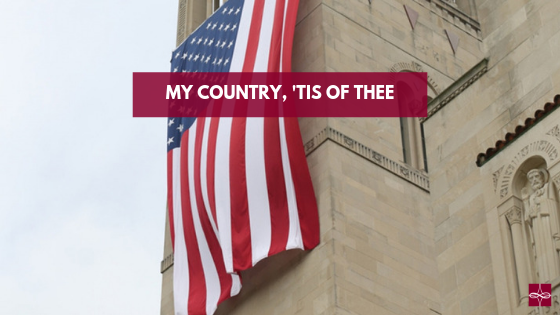

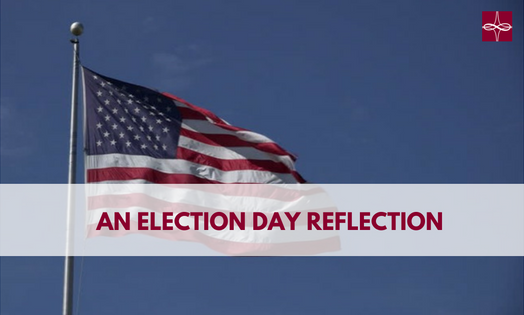
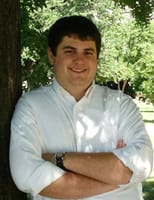
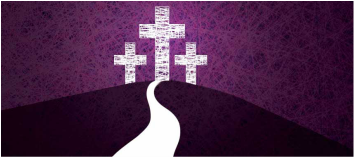
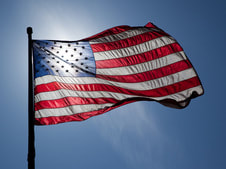
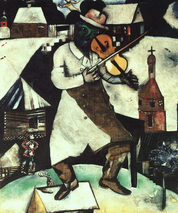
 RSS Feed
RSS Feed